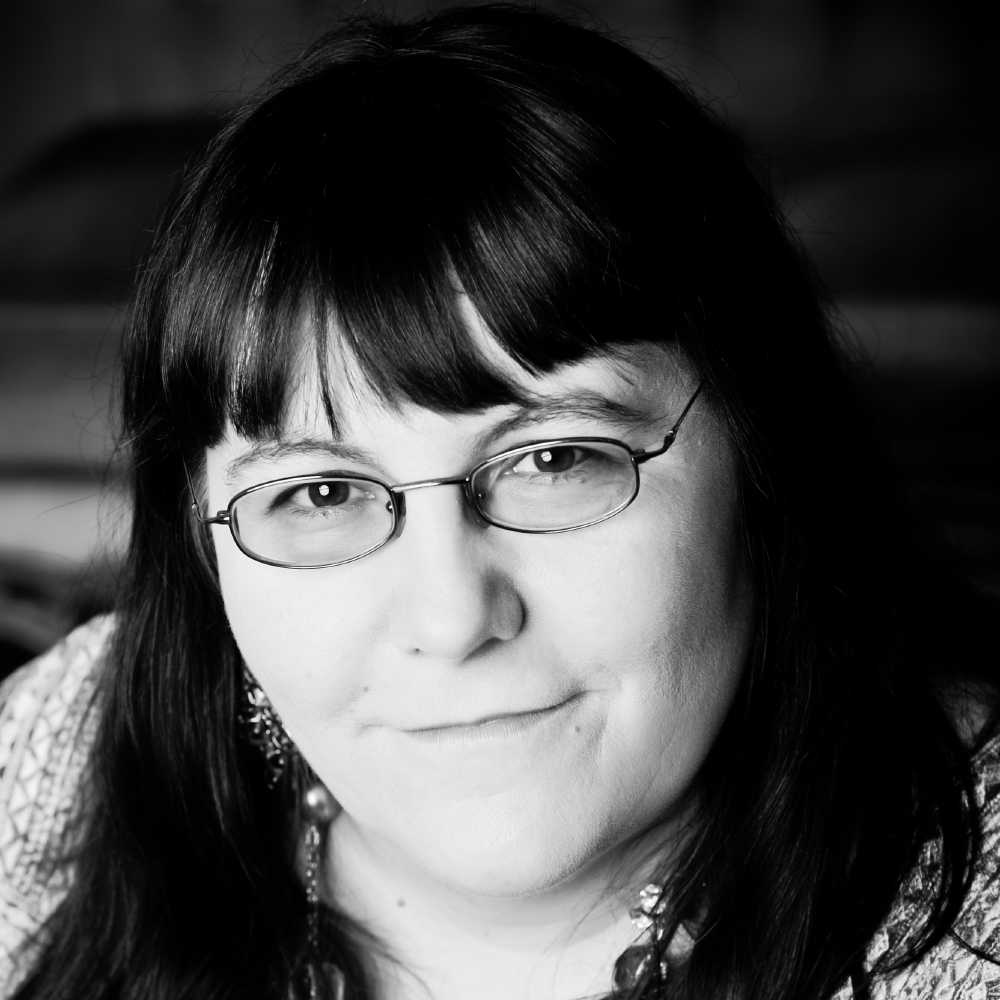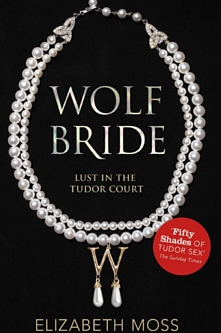

In Wolf Bride, Lord Wolf, hardened soldier and expert lover, comes to King Henry VIII's court to claim his new bride: Eloise Tyrell, lady-in-waiting to Queen Anne Boleyn. The only problem is, Eloise has no desire to submit to a man she barely knows.
Forced into marriage, their first kiss awakens in both a fierce desire that bares them to the soul. But as the court erupts into scandal around the ill-fated Queen, Eloise sees first-hand what happens when powerful men tire of their wives. Summoned to give testimony about Queen Anne's adultery, she is soon afraid for her life and unsure if even Wolf believes in her innocence ...
The book is set in 1536, so please tell us about your research process.
I've spent the past few years writing commercial Elizabethan Court fiction under another pseudonym, so the general background - housing, clothing, food, court habits - was not difficult for me to envisage. The big difference in men's clothing, of course, was the codpiece, which was violently prominent during Henry VIII's reign but had become rather more discreet by the time Elizabeth I came to the throne, perhaps reflecting the nature of each monarch! The main thrust of my research was into Anne Boleyn's trial and execution, which meant time spent in libraries - I favour the Bodleian in Oxford, when I can get there - and of course a visit to Greenwich, though the Tudor palace there was demolished in the seventeenth century and replaced by the very beautiful Old Royal Naval College.
You were born into a literary family, so please can you tell us a bit more about this?
My mother was the late Charlotte Lamb, a prolific and bestselling novelist during the 80s and 90s. My father is Richard Holland, now a classical biographer but formerly chief sub-editor on The Times. My sister Sarah Holland also published some 20-odd novels when she was younger. So I grew up in a household where writing was the norm, and conversations about agents and editors took place at every meal. It's perhaps no surprise that I became a poet in my twenties, and did not begin writing prose fiction with any seriousness until after my mother's death. It's hard to compete with a million-selling author of over 150 novels!
You enjoy reading, so who are your favourites?
My tastes are wildly eclectic. I enjoy reading non-fiction - mainly languages, histories or biographies - as well as historical fiction, romance, crime, sci-fi and fantasy. I am still occasionally active as a poet, and my main influence there is Ted Hughes. Some key novelists for me are Georgette Heyer, Ursula Le Guin, Susan Cooper, Mary Stewart, EM Forster and William Golding. More recent influences include Sylvia Day, Mary Balogh, Philippa Gregory, and of course Hilary Mantel. We're living through a marvellous age for female authors in most genres - but we still need more!
What is the appeal of historical fiction for you?
There's a richness to the past that lends historical fiction a texture and gravitas contemporary stories often seem to lack. There's a temptation for us to imagine the past as being more exciting - and perhaps less depressing in some cases - than modern living, so we pick up an historical novel with a kind of nostalgia. That desire to escape present realities also exists in fantasy fiction, which is why I see the two as being closely allied.
You are keen on being outdoors so where is your favourite place to visit?
Like Gerard Manley Hopkins, I love 'the weeds and wilderness' of desolate places, and indeed live on the fringes of Bodmin Moor, one of the wildest places in England. Walking and thinking go hand in hand for many writers, and I do find it easier to work out a thorny plot problem when on a long walk. However the sea is a big draw for me too. I used to live in Boscastle and would walk along the cliffs there most days, buffeted by the Cornish winds, and imagine myself in some long-lost episode of Poldark ...
You always wanted to be a writer, so tell us about your earliest attempts?
I didn't learn to read until quite late - about 8 or 9 - but was reading Ethel M. Dell and H Rider Haggard by the time I was ten! I also loved Tolkien, so one of my first attempts at a novel, when I was about 11, was a rambling fantasy epic with some 30+ characters and plenty of dramatic desert or cave scenes. My mother showed it to Caradoc King, her literary agent at the time; he was very kind, and suggested a smaller cast of characters! But in fact I switched to poetry in my teens, and did not return to novel writing until much later. My first published novel at age thirty was a contemporary tale of women snooker players - I was briefly a world-ranked snooker player in my twenties - called KISSING THE PINK, but sadly it did not catch the public imagination, and it was another ten years before I hooked up with my current agent and started writing historicals instead.
What is your writing process?
I have an idea - or my agent has an idea that clicks with me - and immediately plan everything out on several whiteboards in my home office, including a rough chapter outline and word count. Once I'm happy with it, I start writing. If that sounds rather mechanical, please be assured that I nearly always deviate from my plan! But it's there as a basic framework, or a safety net if things go wrong. I try to write a minimum of 1000 words a day, but if I'm on a writing retreat - usually a cottage I rent on my own for a week or two - that goes up to maybe 5000 a day. I am insanely perfectionist though, which means I have to edit my prose as I go along. I can't do a 'dirty first draft' like most writers; everything has to be final draft quality before I can proceed. Once the book is finished, I do any necessary revisions my editor has suggested, then it goes to the copyeditor. Copyeditors tend to love me, as I was brought up by a very stern one - my father - and can spot an infelicity at a hundred paces. But a few errors always slip through in a large manuscript. I'm not sure how that happens, but it always does, however closely we scour the text for them. It's like a natural law.
What is next for you?
I am about to embark on book three in my Lust in the Tudor Court series, which is entitled ROSE BRIDE. I am also working on a contemporary crime novel based in Cornwall, and have no idea how it will turn out. But it's a project I've been putting off for a year, so am determined to write it this winter. Beyond that, I'd love to write a contemporary erotic romance series. That's an ambition for 2014. Luckily, I'm a fast writer ...
Wolf Bride by Elizabeth Moss is published by Hodder & Stoughton on 7th November in paperback and eBook, £6.99.

